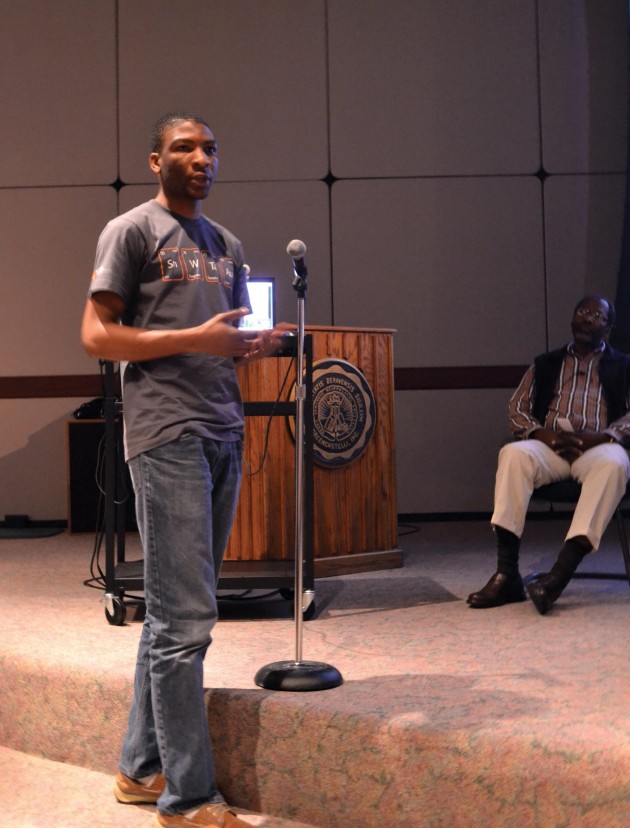
Six million civilians in the Congo have died for the minerals that fuel cell phones.
That's according to the Washington, D.C.-based Raise Hope for Congo campaign, which hosted an event Wednesday night in conjunction with the Prindle Institute for Ethics, where professors and students viewed and discussed the documentary "Blood in the Mobile."
Juniors Henry Dambanemuya and Sarang Wardadkar hosted the event to raise awareness of the conflict.
The conversation centered around possible solutions to the violence and oppression occurring in the Eastern Congo. The discussion addressed what the world and the DePauw community can do. The panel expressed disturbance toward the images in the film and agreed that the scenes depicted should no longer take place in the real world.
Political science professor Brett O'Bannon said the documentary offered a gateway into the impact of the conflict at a personal level.
"The film gave a real face and identity to the conflict and gave a window into the personal lives of enormous suffering of people in the world who produce these minerals to make these electronics," O'Bannon said.
O'Bannon pointed out that many nations depend on electronic devices and that people should recognize that the devices are connected to people in the Congo who are suffering.
Following the documentary, junior Ashley Isaac acknowledged the connection each phone owner has to individual suffering.
"Just looking around, everyone has a phone and is using it," Isaac said. "People don't realize that there was blood shed to make the phone in their hand."
DePauw Student Government passed a resolution last spring calling for limits on the purchase of conflict mineral electronics to reduce contributions to the violence in the Congo.
Dambanemuya's goal for this campaign is to help raise awareness of conflict minerals. He also wants the university to help support this cause.
"My goal is to help the university pass a conflict-free resolution that commits to purchasing conflict-free electronics and made available there by pressuring the electronics industry to exercise due diligence in sourcing the raw materials," Dambanemuya said.
The university is on board with going conflict free. However, the solution is not as simple as passing a resolution.
The panel not only helped to provide awareness of the issue but also sought to explain how DePauw, and other universities, can start heading this campaign to stop conflict minerals.
"This panel brings awareness and gets students who are not involved in African courses to be informed on this topic," said history professor McSamuel Dixon-Fyle. "If we can begin to get people to address these concerns, to give some teeth to the bill passed by U.S. Congress to track suppliers of minerals, it will put pressure on cell phone companies to act. We can show activism on this matter. We ought to be concerned for the people who die making these products"
Wardadkar, an event co-sponsor and advocate for Raise Hope for Congo, said he was impressed with the turnout and believes the event was a positive step toward raising awareness around campus.
Freshman Sharon Maes said she became well informed about the issue after attending the panel discussion.
"It was very eye-opening, and it brings a whole new meaning to civic responsibility," Maes said. "It's important for us as young adults to educate ourselves of issues going on in the world."
Alex Parker, also a freshman, said he felt impacted by the discussion and the effort of those involved to create change.
"It's alarming to see everything that is going on, and it is great to see that there is a movement on campus," Parker said.


